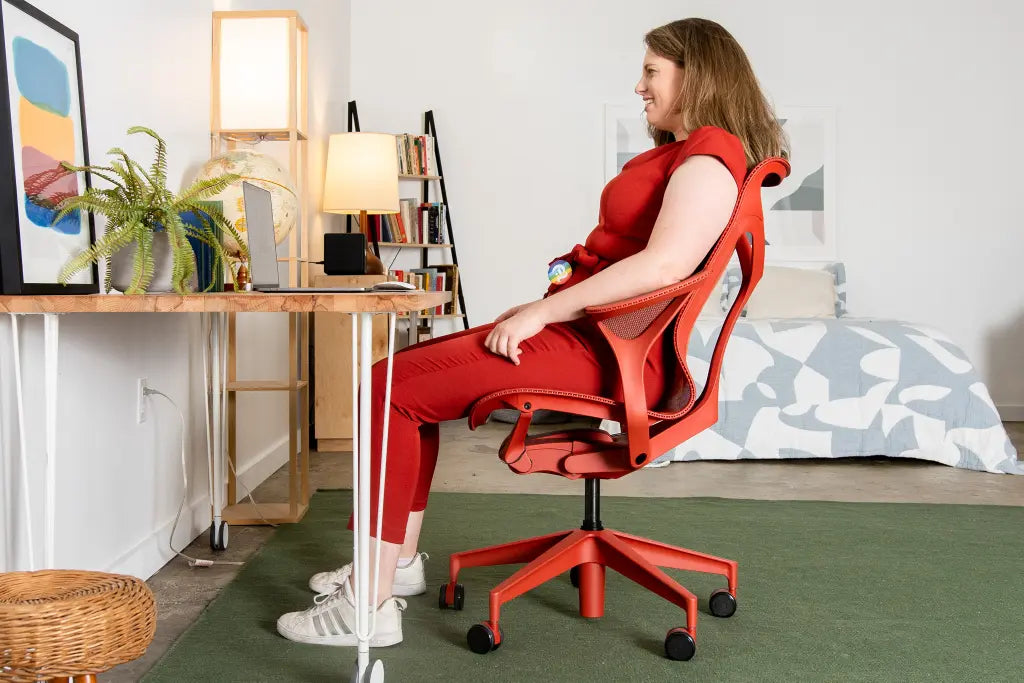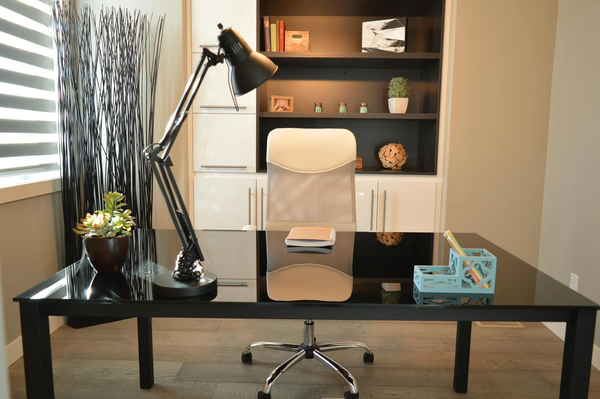Guest Blog:
Designing Productivity: The Role of Office Chairs in a Modern Workplace
In the dynamic landscape of modern workplaces, where productivity and well-being are paramount, the significance of office furniture, particularly the office chair, cannot be overstated. Far beyond mere seating, the design of office chairs plays a crucial role in shaping the productivity and comfort of employees. This article delves into the multifaceted role of office chairs in a modern workplace, exploring how thoughtful design contributes to an environment that fosters efficiency, creativity, and overall job satisfaction.

Ergonomics as a Foundation:
At the core of designing productive office chairs lies the principle of ergonomics. Ergonomically designed chairs are crafted with the human body's natural movements in mind. From lumbar support to adjustable armrests, these chairs promote optimal body alignment, reducing the risk of musculoskeletal issues and enhancing overall comfort during prolonged periods of sitting. The foundation of productivity begins with a chair that prioritizes the well-being of its users.
Customization for Individual Comfort:
Modern office chairs recognize the diversity of the workforce and the importance of individualized comfort. Adjustable features, including seat height, lumbar support, and armrests, allow users to tailor their chairs to suit their unique needs. Customizing the chair to individual preferences contributes to a comfortable and supportive workspace, enhancing productivity by minimizing discomfort and distractions.
Posture Enhancement for Focus:
Maintaining a healthy posture is essential for sustained focus and productivity. Office chairs that support proper posture increase concentration and task efficiency. Whether through lumbar support, dynamic adjustments, or posture feedback mechanisms, these chairs actively promote an environment where employees can maintain optimal body positions for extended periods without compromising their well-being.

Collaborative and Flexible Design:
The modern workplace emphasizes collaboration and flexibility. Office chairs are no exception. Designs that facilitate easy movement, swivel capabilities, and lightweight materials contribute to a flexible and collaborative atmosphere. Employees can effortlessly transition between individual work and team activities, fostering a dynamic and adaptable work environment that aligns with the evolving nature of contemporary workstyles.
Aesthetics and Psychological Impact:
The visual appeal of office chairs is not merely a matter of aesthetics; it also psychologically impacts employees. Thoughtfully designed chairs contribute to a positive and professional atmosphere. When surrounded by well-designed and aesthetically pleasing furniture, employees are more likely to feel motivated and engaged in their work. The psychological impact of a visually appealing workspace should not be underestimated in its potential to enhance productivity.
Integration with Technology:
As technology becomes integral to the modern workplace, office chairs are evolving to accommodate these changes. Chairs with built-in charging ports, wireless charging capabilities, or integrated innovative features align with the technological needs of employees. Seamless integration with laptops, tablets, and other devices enhances connectivity and convenience, allowing employees to stay productive without disruptions.

Wellness-Centric Features:
Beyond essential comfort, modern office chairs often incorporate wellness-centric features. Some chairs offer massage capabilities, while others promote active sitting to prevent sedentary behavior. Wellness-centric designs address the holistic well-being of employees, acknowledging that productivity is intertwined with physical and mental health.
Sustainability and Environmental Impact:
Designing productivity in the modern workplace goes hand-in-hand with a commitment to sustainability. Environmentally conscious office chairs made from recycled materials, with minimal environmental impact, contribute to a workplace ethos that values the well-being of employees and the health of the planet. A sustainable approach aligns with the values of many modern workers, enhancing overall job satisfaction and productivity.
Conclusion:
In the intricate tapestry of a modern workplace, office chairs emerge as pivotal elements that influence productivity, comfort, and employee well-being. The thoughtful design of office chairs, rooted in ergonomic principles, customization, and an understanding of contemporary work dynamics, contributes to a workspace where employees can thrive. As workplaces evolve, the role of office chairs as catalysts for productivity remains central, shaping the efficiency and satisfaction of employees in the dynamic landscape of the modern professional world.
About The Author:
|
|
David Wicks is a professional blogger/Content Writer with over 7 years of experience in the field. I Write on topics That Are related to Home Decor, Furniture, Architecture, Construction. And I have Written for various sites on various topics Such as Finance, Technology and Automotive. |








Leave a comment